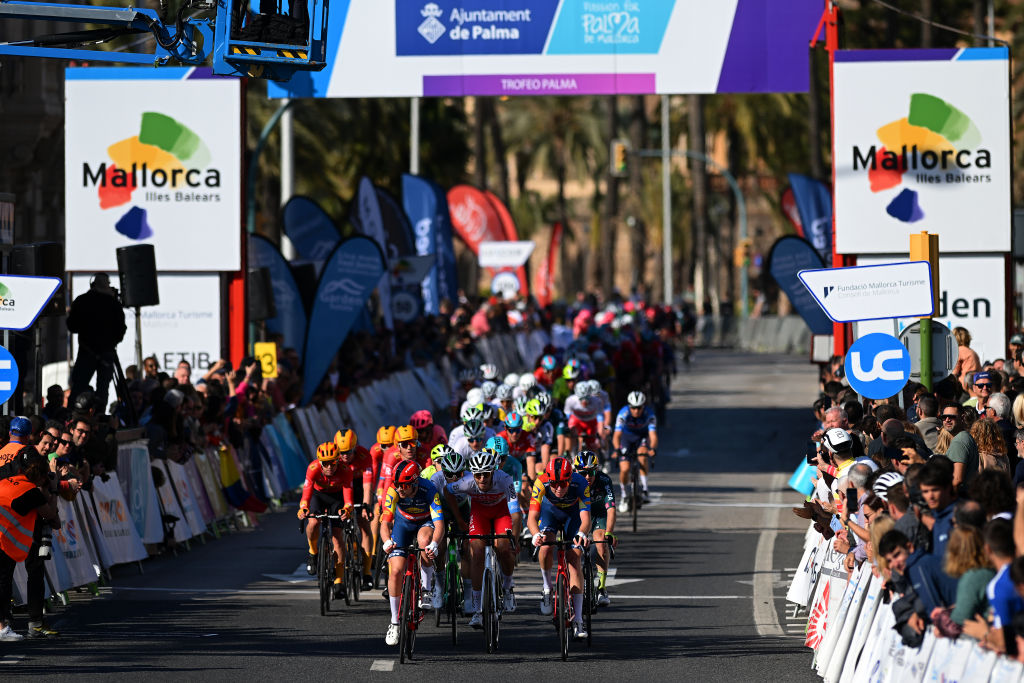
The curtain rose on European road racing on Saturday, with the early season program forming a five-week-long build-up all the way to the first WorldTour-level events for men and women on the continent, the Omloop Het Nieuwsblad in Belgium on March 1.
The intensity of modern-day racing is such now that it seems hard to believe that there was once a popular notion that these late January and February events were simply 'training with race numbers.' But that concept is long since dead and buried.
"Training is something you do at home," Joxean Fernández Matxin, sports manager at UAE Team Emirates-XRG recently told Cyclingnews. "Whenever we race, it doesn't matter what level the event, we race to win."
Given that Matxin's team were the most prolifically successful of 2025, not to mention taking two out of three Grand Tours and two out of five Monuments, that is clearly no mere boast. But if UAE will surely be hitting the ground running again this spring in Europe, their rivals are not far behind.
Furthermore, with relegation and promotion looming next December, UCI points at any time of the 2025 season are arguably more coveted this year than any other in the WorldTour cycle. This arguably makes for both harder-fought competitions, and it certainly makes for complex strategic decisions for teams - do they race where most points are on offer or where they are most likely to get them? - right from the word go.
There is also the question of getting what Chris Boardman famously once described as 'insurance'. By which the top former UK racer meant that a few relatively minor wins in the bag early on make for a significant drop in pressure further down the line.
The road calendar is already in full swing on the other side of the world of course, at the Tour Down Under and Cadel Evans Great Ocean Races, and once the Australian racing is over, at WorldTour level, the Middle East will pick up the slack at the UAE Tours, deep into next month.
But albeit at a lower category - and much lower temperatures out there on the road, too - when it comes to race interest, Europe is far from lagging behind. And, as a way of building anticipation for the main body of the road racing calendar later in the year, too, the early season events of January and February on the Old Continent always have a major contribution to make.
Spanish openers – GP Castellòn & Trofeo Luis Puig
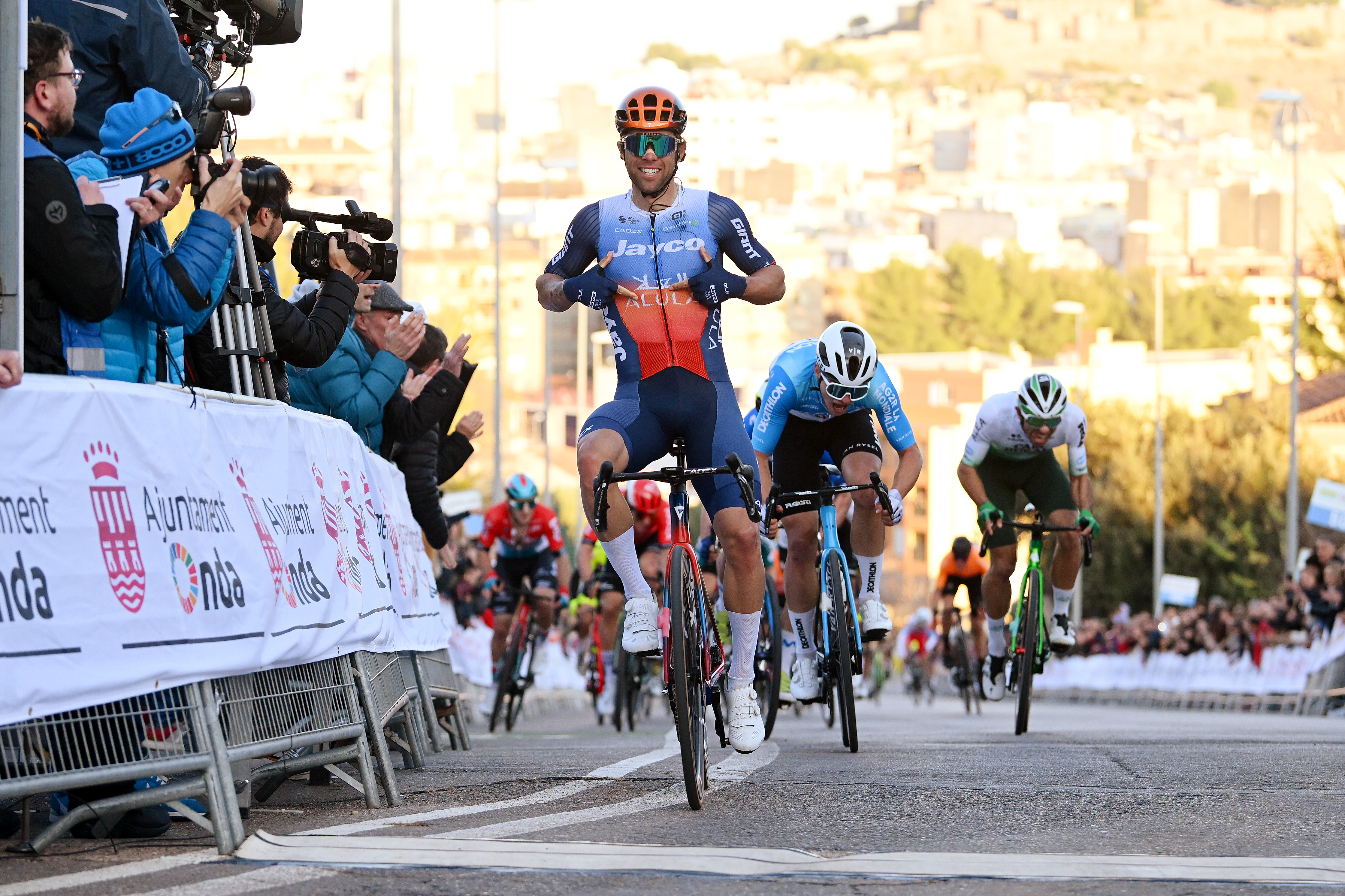
Both for the women and men's elite, when it comes to getting European road racing underway this week, only one country matters: Spain.
Within the Spanish borders, too, it's no coincidence that all events this week take place on the eastern side of the country, too, where the weather tends to be the warmest at this time of year. It's also where many of the teams are still holding training camps.
First off on the women's calendar are three one-day races held on consecutive days on the island of Mallorca, the Trofeo Marratxi-Felanitx (Saturday, January 25), the Trófeo Palma Femina (Sunday, January 26) and the Trofeo Binnisalem-Andratx (Monday, January 27). All ranked 1.1 and at 130 kilometres or less, these 'Challenge Mallorca Femenina' races are a recent addition to the calendar, starting in 2024. They mirror the much longer-standing series of back-to-back one-day races for the men on the same island, which start later in the same week.
Marratxi-Felanitx is a lumpy 129-kilometre run through the south of the island, with Mallorca-born Mavi Garcia, riding for the Spanish National squad, and leading Italian sprinter Chiara Consonni, on her new team Canyon-SRAM zondacrypto, two of the headline names. Palma Femina offers a much tougher profile, with two cat 3 climbs later on and an uphill finish at the castle in the island capital. Binnisalem-Andratx ends the three-day series with a short but ferociously punchy ride through the mountains on the western side of Mallorca, concluding with a steep cat.1 uphill finish in Andratx Port.
Meanwhile, elite men's racing opened up on the other side of the Mediterranean in the easterly region of Valencia. Although the first event on the Spanish calendar is the 1.2-ranked Camp de Morvedre one-day Classic on Friday, the first time many of the WorldTour peloton were be seen in action in Europe will be at the GP Castellón on Saturday, January 25, where António Morgado took the spoils.
Another relatively recent addition to the men's calendar, the 1.1-ranked one-day race in the northern side of Valencia was created to promote the region's well-established cerámica [pottery] industry, hence its full name: Gran Premio Castellón-Ruta de la Cerámica.
Hot on the heels of the GP Castellòn is the equally rugged Clàssica Communitat Valenciana 1969-Gran Premi València, another 1.1 race which runs out of the regional capital and south through the mountains to the small town of La Nucia.
The area is well-known to many teams because of their training camps, and UAE Team Emirates, who used to have many winter camps in La Nucia, will be the biggest team on the start line at their second European event of 2025.
Alternating between flat finales like in 2024 and much hillier ones like in 2023 and 2025, it's hard to predict who will succeed Arnaud De Lie (Lotto) and Dylan Groenewegen (Jayco-AIUIa) as the last two winners. But Spanish National Champion Alex Aranburu (Cofidis), who's proved his aptitude on such varied, hilly terrain in the past in his native Basque Country, could well be in with a shout.
The Challenge Mallorca
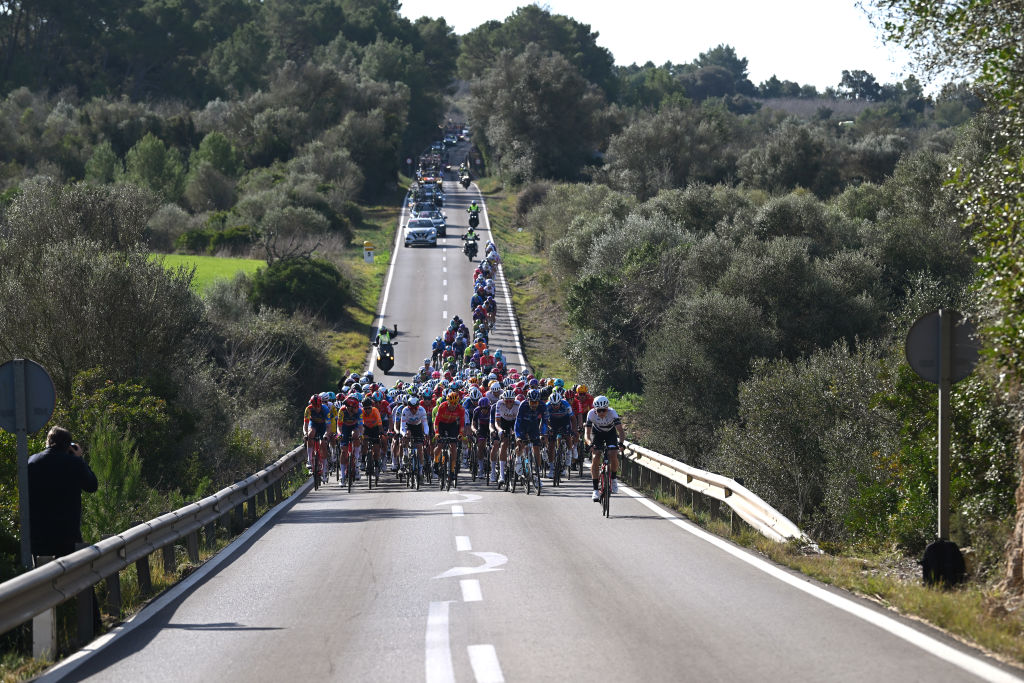
Is it a one-day race? Is it a stage race? No, it's the Challenge Mallorca. For years one of the first races in Europe, the Challenge has one of the oddest formats, too, with up to five one-day races held back-to-back on consecutive days.
But given the Challenge Ciclista Mallorca - to give the races their full name - has been running since 1992 for the elite men, it's clearly an effective format, given it allows riders to drop in and out of different races, depending on their long-term goals. And when the Challenge Mallorca Femenina began in 2024, the structure was the same, too.
One key to success, too, is their variety. The opening Trofeo Calvia on Wednesday, January 29 is hilly while the Trofeo Ses Salines on January 30 is much flatter. Trofeo Serra Tramuntana on January 31 and Trofeo Andratx on February 1 take the riders into the mountainous northwesterly side of the island, while the final Trofeo Palma on Sunday, February 2 sees the riders conclude their island sojourn with multiple flat laps of the capital. Then after the almost inevitable bunch sprint to close out the Challenge, it's straight to the nearby airport for a flight back to mainland Spain - or beyond.
Grand Prix Cycliste la Marseillaise & Étoile de Bessèges - Tour du Gard
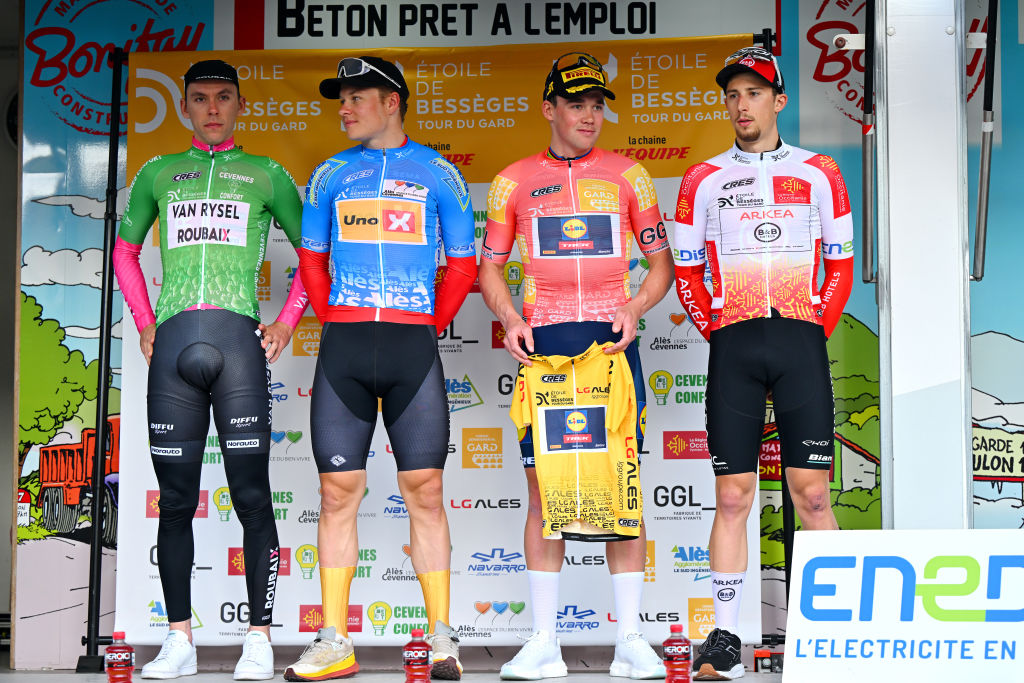
After over a week of exclusively racing in Spain, the last day of the Challenge Mallorca overlaps with the first day of the cycling calendar in France, at the one-day Grand Prix Cycliste la Marseillaise.
Running deep into the hills above the Mediterranean French port before dropping down to the coast for a finish, Marseillaise's palmares contains an intriguing mix of Classics and time-trialling specialists, like last year's winner Kevin Geniets (Groupama-FDJ) and climbers such as Aurélien Paret-Peintre (Decathlon-AG2R La Mondiale). One of the delights of early season racing is its unpredictability, in fact, and Marseillaise is a leading example.
Three days later and just a few hours drive further north, France celebrates its first stage race of the season, the longstanding Étoile de Bessèges - Tour du Gard. Won by Mads Pedersen (Lidl-Trek) last year, Bessèges tends to consist of four increasingly hard stages captured mainly (but not exclusively) by sprinters capable of getting over the smaller climbs, before a final short time trial.
It is sometimes affected by the occasional spell of tough wintry weather conditions, and traditionally Bessèges is a course which features a fair share of flat, exposed terrain, often running on technical, twisting country backroads. As a result, echelons and time bonuses on the mass start stages may well once again play their part in deciding the overall winner - but normally it's the final, last-day time trial which has the last word.
Volta a la Comunitat Valenciana
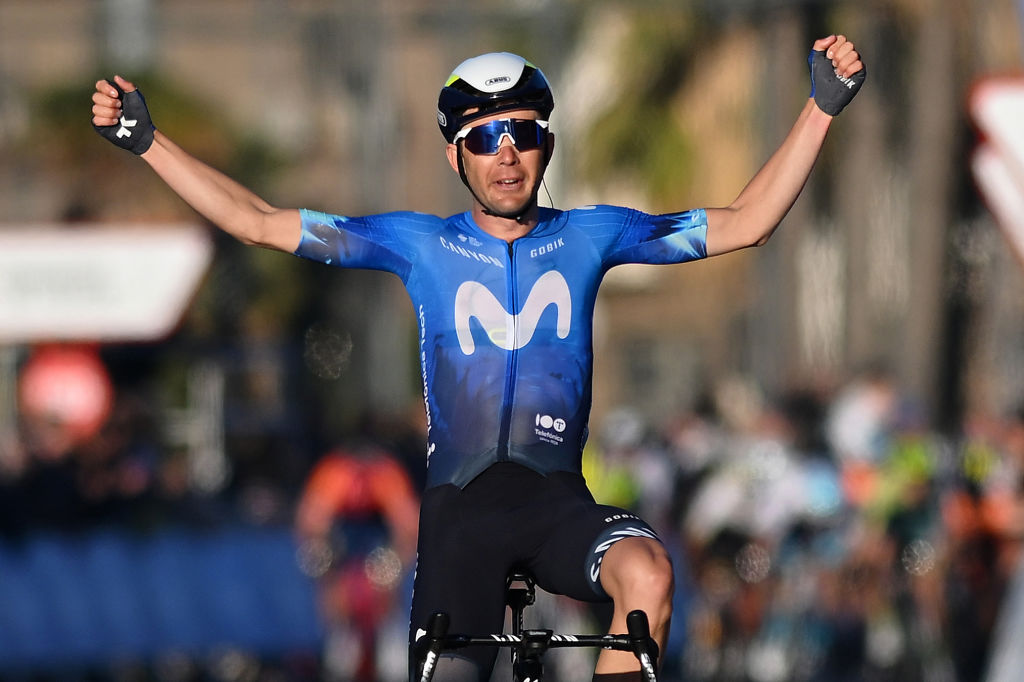
If this year's edition of the Volta a la Comunitat Valenciana (February 5-9) and Vuelta CV Feminas (February 9) seem particularly emotive affairs, don't be surprised. The tragic events of last autumn, which saw hundreds of people perish in the worst mass flooding in Valencia's modern history, will provide a sombre backdrop to a region still battling to find its feet, repair the immense damage caused, and come to terms with what happened.
Few details have yet to emerge, and the one-day Vuelta CV Feminas race route is as yet unpublished and the start and finish towns are almost the only official data available for the men's race. Logistically the organisers themselves were amongst those badly hit by the flooding, with the race headquarters and material all affected. But after some initial doubts, they finally announced the race would go ahead.
What is known so far is that this year's Volta a la Comunitat Valenciana kicks off in Orihuela in the region's deep south with an intriguingly long 34-kilometre team time trial, followed by two mountainous mid-race stages and a final run into the region's capital on Sunday, February 9.
At least two of the later stages will run through areas most badly affected by the flooding, in the words of the Spanish sports daily MARCA "not just to try and provide a higher [media] profile for what happened, but also to offer those affected a small and temporary means of relief from a situation which remains extremely delicate."
Tour de la Provence, Classic Var & Tour des Alpes Maritimes et du Var
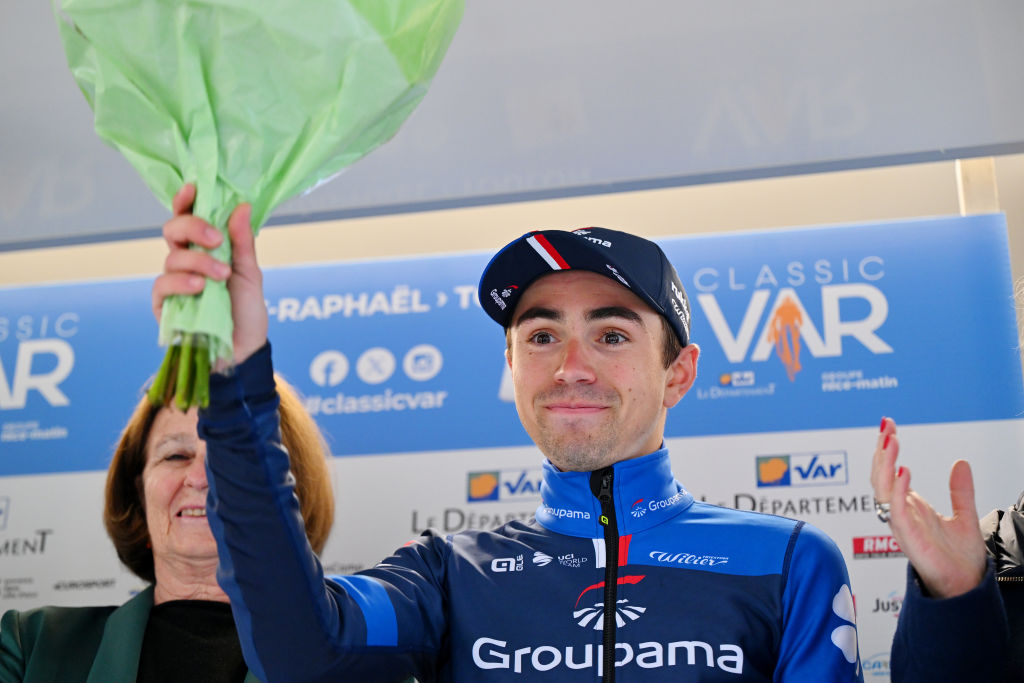
Back in the 1960s and 1970s, training camps in southern France for top Belgian and Dutch teams were as common as they are in southern Spain now for almost all the squads, and alongside them, a series of one-day and stage races developed to give the stars a chance to go through their early season paces. Along with GP Marseillaise and the Étoile de Besseges, the Tour de la Provence (February 14-16), Classic Var (February 21) and the Tour des Alpes Maritimes et du Var (February 22-23) all continue with that tradition.
Perhaps because it's the earliest, the Tour de la Provence has the easiest route, with a lumpy stage starting in the regional capital, Marseille, opening up proceedings. Then stage 2 from Forlcalquier to Manosque is by far the hardest, taking in 2,335 metres of vertical climbing and a fearsome cat.1 ascent of Col de L'Aire Deimasco, midway through the day. Stage 3 from Rognac to Arles is long (197 kilometres) but much more straightforward, although crosswinds on the flat Camargue marshlands could yet do some damage in the GC.
On the following weekend, the one-day Classic Var is only being held for the second time. In 2024, it split off from the following two-day race, the Tour des Alpes Maritimes et du Var, the organisers taking a leaf out of the Challenge Mallorca playbook and holding two separate events to increase the potential for extra publicity.
Regardless of the format, the formula remains the same as when Var and Alpes Maritimes were all one race with a history stretching back to 1969 and a first edition won by Raymond Poulidor. While it is a one-day race, Var has retained a typical stage 1 rolling course with a tricky finale, while Alpes Maritimes sticks to having lots of mountains including the Col d'Eze - of Paris-Nice fame - and Col de Châteuneuf along the way.
Full rosters are a long way from being decided, but Mads Pedersen (Lidl-Trek) is already slated for the slightly more Classics-rider-friendly Tour de la Provence. Meanwhile in the Classic Var-Alpes Maritimes combo', Classic defending champion Lenny Martinez (Bahrain Victorious) will be the big draw for the local fans both at the one-day race on Friday, February 21 and over the following weekend, too.
Clasica de Almería, Clásica Jaén and the southern Spanish races
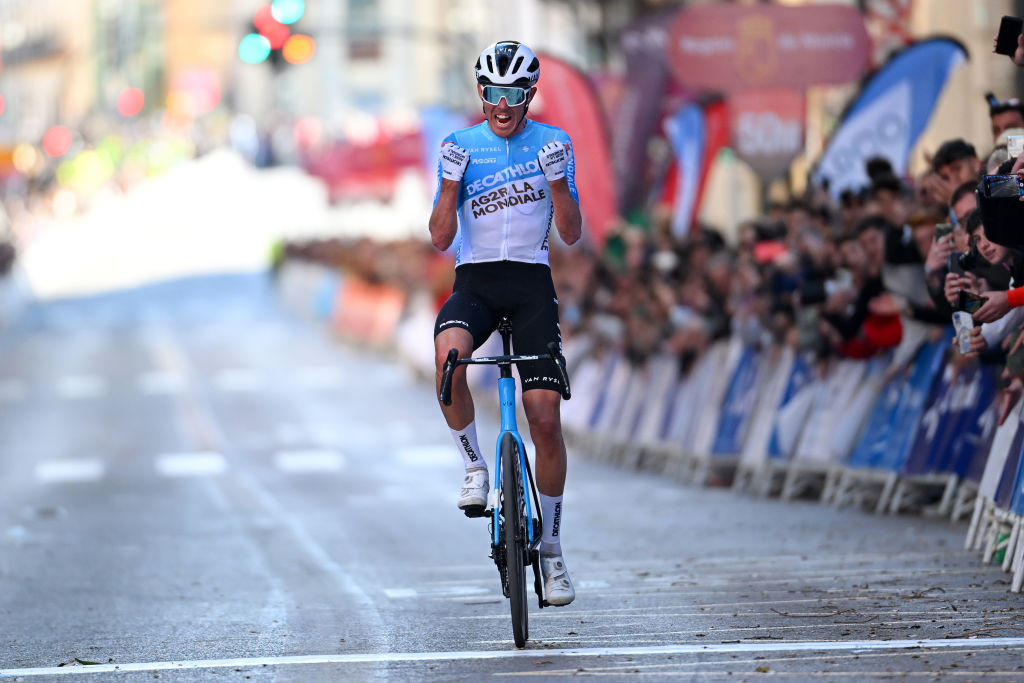
Curious but true: every year Spain's early season races run in a single unbroken clockwise arc, starting on its eastern seaboard in Mallorca and Valencia for the first races in late January, then on southwards to the one-day Classics in Murcia and Alicante, and then finally westwards, first for the Clásica Jaén and then the five-day Vuelta a Andalucia-Ruta del Sol.
The five-week trek south and east across Spain only stops this year on the final stage of Andalucia on February 23, when it reaches the region's most southerly city of La Línea de la Concepción, with Morocco a scant 14 kilometres further away across the Strait of Gibraltar.
The elite women's calendar follows a similar route, starting in Mallorca and the one-day Vuelta CV Féminas in Valencia and continuing in the same region for the unwieldily named Setmana Ciclista Volta Femenina de la Comunitat Valenciana.
The first European-based stage race on the women's calendar, the Setmana has been steadily rising up the categories since it began in 2016 as a 2.2 race, moving up to 2.1 in 2021 and 2.Pro in 2023. In 2025's edition from February 13-16, it retains a four-day format, and once again, too, boasts an impressive (albeit provisional for now) start list, with both Marianne Vos (Visma-Lease a Bike) and Demi Vollering (FDJ-SUEZ) pencilled in to race.
A week later the elite women's calendar follows the same direction of Spanish travel as the men, with the Clasica de Almería in the country's most south-easterly region. Run by the same organisation for the men's Clasica de Almerica since it began in 2023, Almeria has had much more rugged routes than the elite men's race and it'll be interesting to see if that tendency continues. It has a curious track record of being won by just one squad to date, Cynisca, and by exclusively North American racers, too: Emilie Fortin of Canada took her one career victory so far in 2023 followed by gravel star Lauren Stephens of the USA in 2024.
After Comunitat Valenciana, the elite men's Spanish racing calendar continues with the Vuelta a la Región de Murcia on Saturday, February 15. As the name suggests it's a former stage race squeezed down over the years to a single day. No matter: it's undulating course, often concluding with a trek over the Cat.2 Collada de la Gallina climb before bombing back down the very technical descent and into the nearby city capital, almost invariably produces some of the most exciting racing of the early season: witness Ben O'Connor's dramatic solo winning attack last February, for example.
The sprinters then come to the fore for the Clásica de Almeria on February 16 - a pleasant but usually somewhat predictable run past the endless seas of plastic greenhouses that dominate some parts of the province - and that's followed 24 hours later by another race in eastern Andalucia, the Clásica Jaén. As the first race of the season regularly to feature off-road sections, the 'Classic of the Olive Groves' has proved very popular with fans since it began in 2022, and Wout van Aert's return there this year is also likely to be a major draw.
After one of the most recent additions to the Spanish road calendar, next up is one of its most veteran events, the Vuelta a Andalucia-Ruta del Sol, which celebrates the centenary of its first edition this year. Reduced to a single five-kilometre time trial last year because of farmer's protests, this year Andalucia is back to its full five stages - all of them very hilly, barring the final Sunday's flatter final run along the coast. Top participants will include Enric Mas (Movistar), Marc Soler (UAE Team Emirates) and Tom Pidcock (Q36.5).
Volta ao Algarve
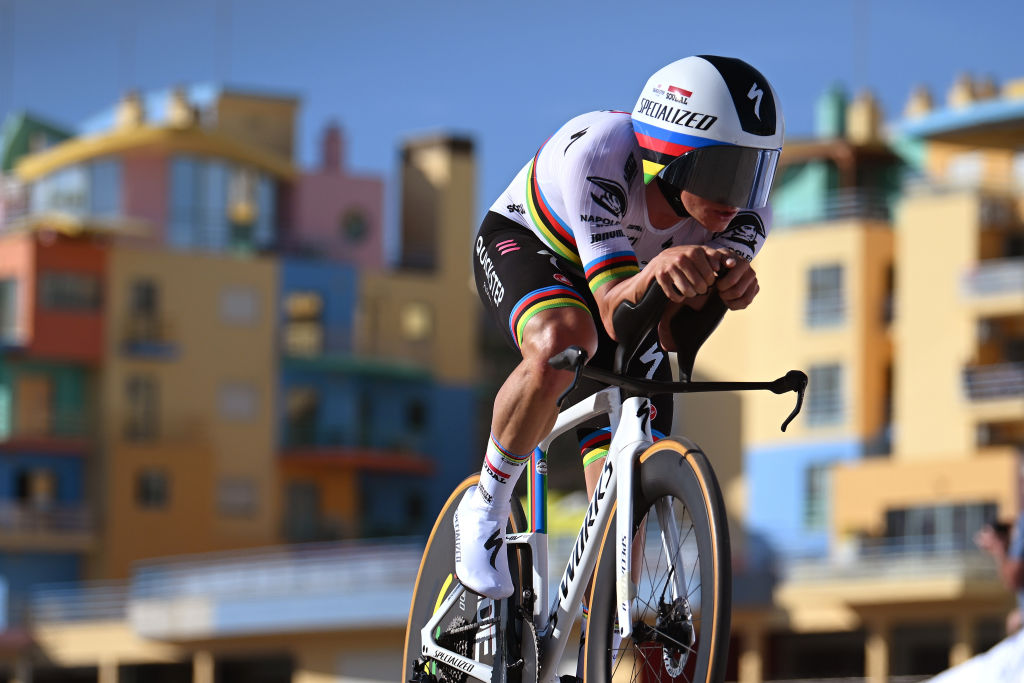
Portugal's long-term contribution to pro cycling rarely - and unfairly - gets the credit it deserves amongst the international media, but every February for a week at least, the Volta ao Algarve and the more recent addition of the Figueira Champions Classic do their best to set the record straight.
This year's third edition of the Figueira Classic may be lacking the superstar presence of Remco Evenepoel (Soudal-QuickStep), who kicked off his last season with a stunning trademark long solo breakaway to victory. But its 2,200 metres of vertical climbing, culminating in multiple ascents of the short, Ardennes-style, ascents of Rua Parque Forestal (1.3km at 7.8%) and Enforca Câes (0.8km at 7.3%), will surely see some ferocious race action nonetheless.
Julian Alaphilippe, riding his first event for his Tudor team, tops the bill in Portugal's biggest one-day race, and the multiple World Champion will be joined in the Volta ao Algarve (Feb 19-23) three days later by a host of other top names. In what is almost certainly set to be the strongest start list of any European early-season race, Algarve will also play hosts to the 2025 debuts of Primož Roglič (Red Bull-Bora-Hansgrohe), Jonas Vingegaard (Visma-Lease a Bike), with João Almeida (UAE Team Emirates), Arnaud de Lie (Lotto), Wout van Aert (Visma-Lease a Bike), Geraint Thomas (Ineos Grenadiers) and Tao GeogheganHart (Lidl-Trek) all also present
Algarve traditionally reserves two days for the sprinters, stages 1 and 3, but it also includes an innovative 'breakaway' day on stage 4 and a summit finish at Fóia on stage 2 - the region's highest point. The big novelty, though, is a 20-kilometre time trial on the last day up the race's emblematic ascent, the Alto do Malhão, where a worthy successor will emerge to three-time winner Remco Evenepoel.
O Gran Camiño - The Historical Route
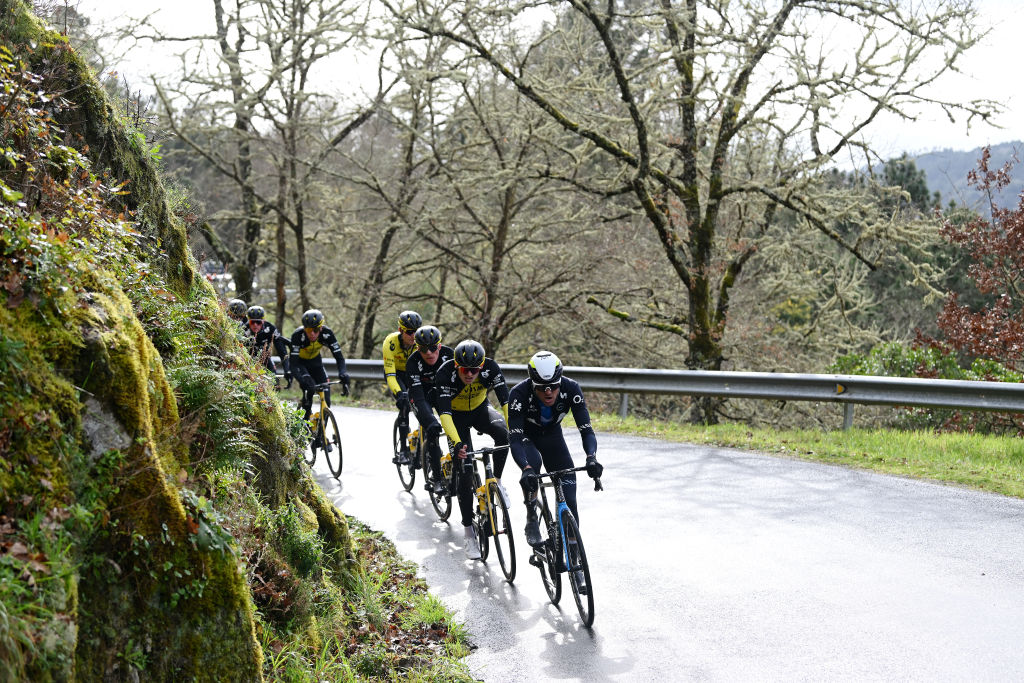
Born out of the roots of the long-absence Vuelta a Galicia, O Gran Camiño - The Historical Route moves away from the traditional stomping grounds for early season stage races towards the much more difficult climbing challenges provided by Spain's far north-west.
Extended from four days to five for the first time in 2025, O Gran Camiño also has an unprecedented start this year in neighbouring Portugal. On paper, the key points for the GC battle are the flat mid-race time trial in easterly Ourense on stage 3 and the toughest stage of the race through the mountains of Lugo on stage 4.
But on the treacherously beautiful terrain that Galicia invariably offers, literally, anything can happen at any point - and even on stage 5, with unpaved roads bringing the pack into the cathedral city of Santiago de Compostela, the sparks could still fly. Only one thing is certain: after back-to-back victories for Jonas Vingegaard, this year the race will have a new winner.







